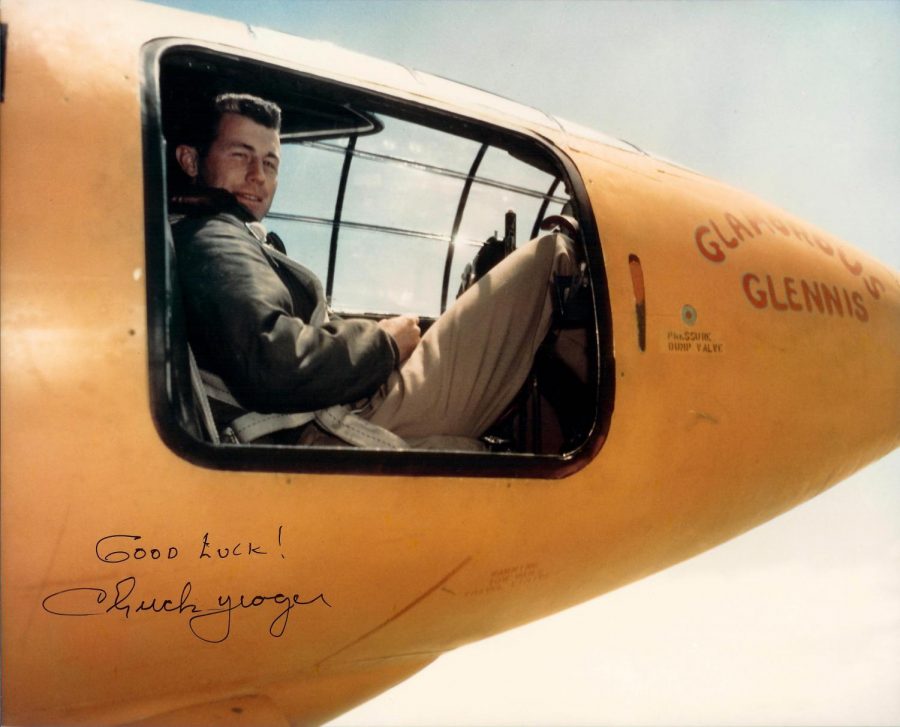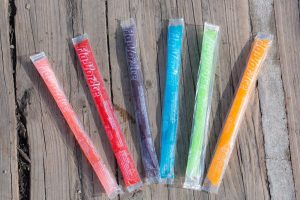Chuck Yeager, test pilot who broke the sound barrier, dies at 97
Chuck Yeager sits in the cockpit of his record breaking Bell X-1 rocket plane, “Glamorous Glennis.” The photos was signed “Good Luck, Chuck Yeager” in 1994 at Edwards Air Force Base, California. (Jack Ridley/Public Domain)
December 18, 2020
The sound barrier was thought to be unbreakable that it would rip apart any airplane that even approached such ferocious speeds. However, on October 14, 1947 high above the Mojave Desert in California, U.S. Air Force Captain Chuck Yeager climbed into the Bell X-1. Yeager had named the plane “Glamorous Glennis” in tribute to his wife.
Dropped from 25,000 feet from beneath a B-29 bomber, Yeager fired up the X-1’s ethyl alcohol and liquid oxygen powered XLR11 rocket engine.
The X-1 carried Yeager up to 43,000 feet and his speed steadily increased. Soon observers on the ground heard the tell-tale sign that Yeager and his X-1 “Glamorous Glennis” had broken the sound barrier: a sonic boom.
Brigadier General Charles Elwood Yeager died on December 7, 2020 in Los Angeles. He was preceded by his first wife Glennis who died in 1990. Yeager was survived by three children and his second wife Victoria.
Yeager had piloted P-51 Mustang fighter planes in combat with the 363d Fighter Squadron in World War II. He served in Europe where he was shot down over France by a German fighter, but also was credited with downing 13 enemy planes including five in one day.
Yeager continued to serve in the U.S. Air Force after breaking the sound barrier. In 1953 just two months after the sensation of hostility in the Korean War, Yeager tested a Soviet MiG-15 that had been captured following the defection of a North Korean pilot No Kum-sok.
During the Vietnam War, now Colonel Yeager commanded a fighter wing and piloted the B-57 light bomber in 127 missions.
Promoted to Brigadier General in 1969, Yeager served as the vice-commander of the Seventeenth Air Force. In 1975 after assignments in Pakistan and Germany, Yeager retired.
Throughout his long career Yeager had earned many of the most prestigious awards available to Air Force personnel: the Distinguished Service Medal, the Silver Star, the Legion of Merit, the Distinguished Flying Cross as well as the Bronze Star. Additionally, President Ronald Reagan awarded Yeager the Presidential Medal of Freedom in 1985, the nation’s highest civilian award.
In his memoir, Yeager: An Autobiography, he responded to one of the questions he got the most: When you flew so fast were you afraid of dying?
“I was always afraid of dying. Always,” wrote Yeager, “It was my fear that made me learn everything I could about my airplane and my emergency equipment, and kept me flying respectful of my machine and always alert in the cockpit.”






